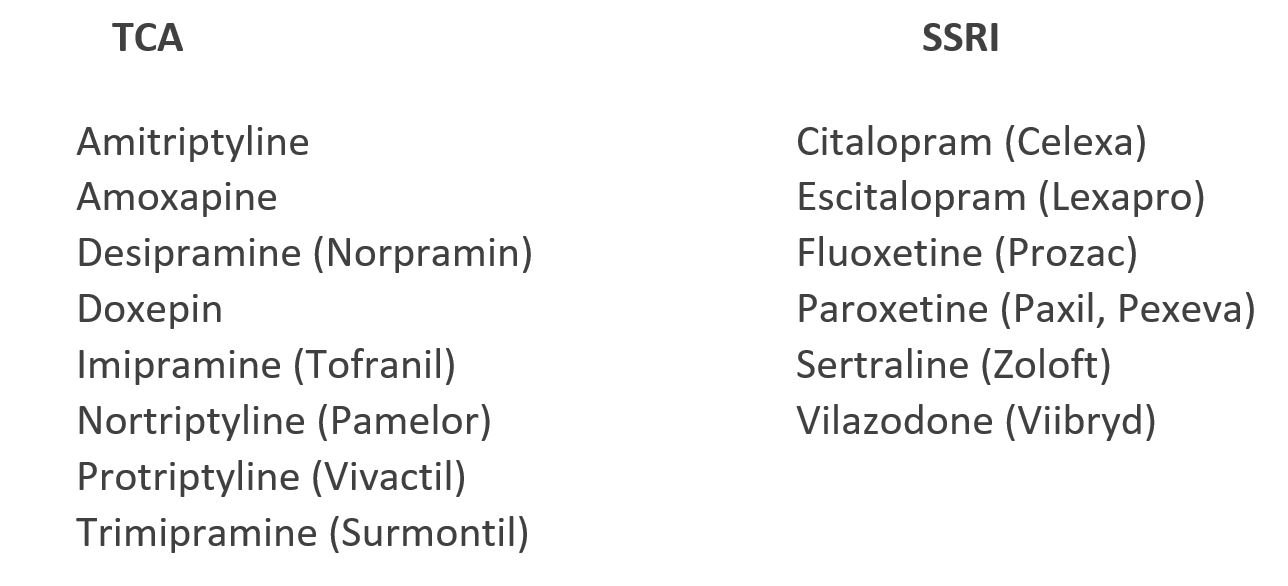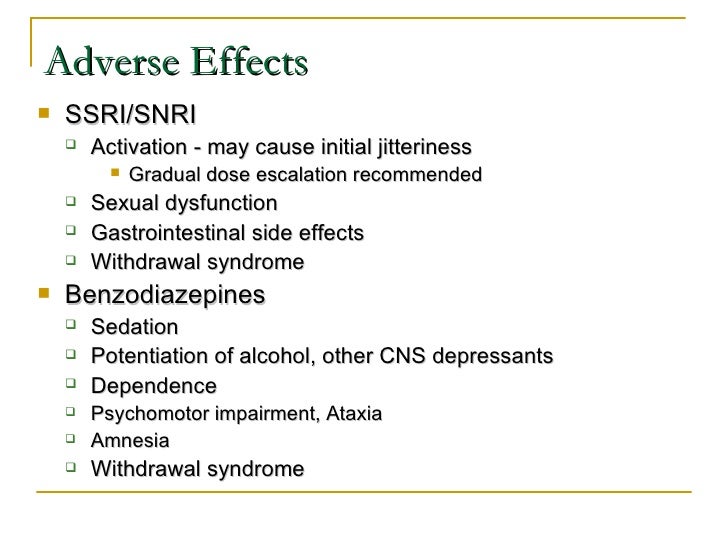
- BEST SSRI FOR ANXIETY AND INSOMNIA HOW TO
- BEST SSRI FOR ANXIETY AND INSOMNIA TRIAL
- BEST SSRI FOR ANXIETY AND INSOMNIA PROFESSIONAL
From the 14 studies that provided usable data, they calculated that 56% of antidepressant users experienced withdrawal symptoms when they discontinued the medication. Read and Davies undertook a systematic review of studies related to antidepressant withdrawal.

That change was inspired by a review commissioned by the British Parliament and conducted by the University of East London’s Read and James Davies, PhD, a psychotherapist and medical anthropologist at the University of Roehampton. The American Psychiatric Association’s practice guidelines recommend tapering the medication over the course of “at least several weeks.” But in the United Kingdom, the National Institute for Health and Care Excellence has recently amended its depression guidelines to state that withdrawal symptoms may be severe and protracted in some patients.
BEST SSRI FOR ANXIETY AND INSOMNIA PROFESSIONAL
To avoid withdrawal symptoms, professional guidelines recommend that patients should not stop antidepressants abruptly. SSRIs like Paxil (paroxetine), which has a half-life of about one day, should be tapered down over a longer period than drugs like Prozac (fluoxetine), which has a half-life of two to four days. Pharmacologists have generally believed that any withdrawal effects from antidepressants were tied to their elimination half-life, a measure of how long it takes for half of the drug to be metabolized and eliminated from the body, Fava says. People also report “brain zaps,” a feeling they describe as a jolt of electricity to the brain (Papp, A., The Primary Care Companion for CNS Disorders, Vol.
BEST SSRI FOR ANXIETY AND INSOMNIA TRIAL
In a randomized trial nearly 20 years ago, he and his colleagues showed that when patients’ SSRIs were abruptly replaced with a placebo, they experienced a variety of effects including headaches, dizziness, fatigue, insomnia and flu-like symptoms, as well as irritability, aggression, anxiety, panic attacks and mood changes (Michelson, D., British Journal of Psychiatry, Vol. Yet when people stop taking antidepressants, they can experience a constellation of withdrawal symptoms, says Maurizio Fava, MD, a psychiatrist at Massachusetts General Hospital (MGH) and executive director of the MGH Psychiatry Clinical Trials Network and Institute. The APA Clinical Practice Guideline for the Treatment of Depression Across Three Age Cohorts supports their use as a first-line treatment for depression in adults. For some people, the newer drugs have brought welcome relief from depression and anxiety disorders. They’re safer than older antidepressant drugs such as tricyclic antidepressants and monoamine oxidase inhibitors (MAOIs), which have significant side effects and toxicity issues.

Today’s SSRIs and the closely related serotonin-norepinephrine reuptake inhibitors (SNRIs) modify neurotransmitter activity in the brain.

Meanwhile, psychologists have a role to play in helping patients understand the effects of antidepressant drugs, and in supporting them through decision-making and possible side effects if they decide to discontinue them. As the evidence for withdrawal effects accumulates, some professional groups are revisiting guidelines for prescribers. Thirty years after these drugs made their debut, scientists are still sorting out how antidepressants affect brain function and what happens when people try to stop taking them.
/478186891-569fc9e35f9b58eba4ad343b.jpg)
“Withdrawal effects aren’t rare, they aren’t short-lived and they’ve been dismissed by drug companies for decades.” “The idea that these side effects last a couple of weeks is outrageously inaccurate,” says John Read, PhD, a professor of clinical psychology at the University of East London. Now, new research backs up the idea that for many people, antidepressant withdrawal might be a bigger problem than most have realized.
BEST SSRI FOR ANXIETY AND INSOMNIA HOW TO
Finding a lack of support from prescribers as they figure out how to stop the drugs, many people have turned to online forums for advice-where some report they’ve resorted to opening pill capsules to remove a few beads, in a DIY effort to reduce their dosages more gradually. According to the latest data available, nearly 13% of people age 12 and older in the United States have taken an antidepressant medication in the past month ( NCHS Data Brief, August 2017).īut what happens when people want to stop taking these medications? The thinking in the medical community was that patients could wean off these drugs with minor side effects, but anecdotally, many patients have reported troubling mental and physical withdrawal symptoms that last for months or even years. Three decades later, the drug and its eventual competitors have transformed the treatment of depression and anxiety. Prozac, the first selective serotonin reuptake inhibitor (SSRI) approved in the United States, burst onto the scene in 1987.


 0 kommentar(er)
0 kommentar(er)
